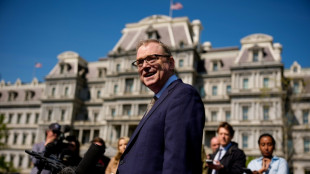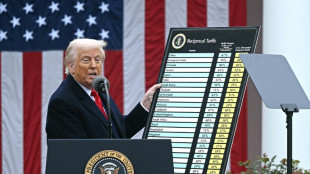

US firms plan to pass Trump tariff costs to consumers: Fed minutes
US firms have warned the Federal Reserve that the cost of President Donald Trump's tariffs will likely be borne by consumers, according to minutes of the bank's most recent rate decision.
Since returning to office in January, Trump has embarked on a stop-start tariff rollout that has unnerved investors and shaken global financial markets.
The Fed's meeting on May 6 and 7 took place after Trump had announced a 90-day pause on the most severe levies he had threatened against dozens of trading partners, and shortly before the White House unveiled trade deals with China and Britain, helping to soothe some market concerns.
At that meeting, policymakers voted to hold the US central bank's benchmark lending rate between 4.25 and 4.50 percent as they continued to fight inflation, which remains above the Fed's long-term target of two percent.
"Many participants remarked that reports from their business contacts or surveys indicated that firms generally were planning to either partially or fully pass on tariff-related cost increases to consumers," the Fed said in its minutes of the meeting, published Wednesday.
Participants also "noted that the Committee might face difficult tradeoffs if inflation proves to be more persistent while the outlooks for growth and employment weaken," the Fed warned in its minutes.
The Fed has a dual mandate to act independently to tackle both inflation and unemployment.
The views of Fed officials chime with the opinions of many economists, who see Trump's levies as inflationary and bad for growth.
Trump and his allies insist that tariffs are one part of a wider policy mix, and that the US president's overall package of economic plans -- including tax cuts and deregulation -- should boost economic growth.
Given the high tariff-related uncertainty, Fed officials decided that it was prudent to keep rates where they were.
"Participants agreed that with economic growth and the labor market still solid and current monetary policy moderately restrictive, the Committee was well positioned to wait for more clarity on the outlooks for inflation and economic activity," the Fed said.
Y.Alyami--al-Hayat




